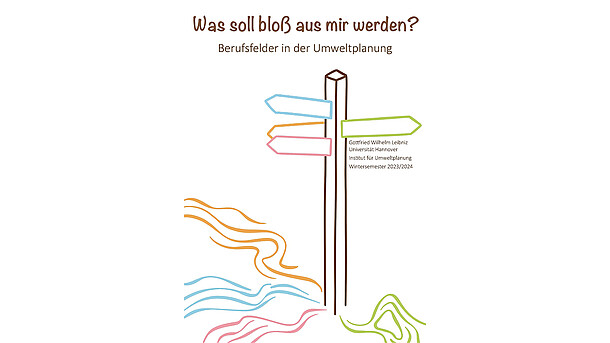![[Translate to English:] Gruppenfoto: Studierende in Athen](https://www.umwelt.uni-hannover.de/fileadmin/_processed_/a/6/csm_2019_Athen_Lycabettus_408f4992ac.jpg)
![[Translate to English:] Gruppenfoto: Studierende in Athen](https://www.umwelt.uni-hannover.de/fileadmin/_processed_/a/6/csm_2019_Athen_Lycabettus_0a33667a69.jpg)
![[Translate to English:] Gruppenfoto: Studierende in Athen](https://www.umwelt.uni-hannover.de/fileadmin/umwelt/Studium/Lehr_und_Lernformen/Exkursionsfotos/2019/Exkursion_nach_Athen_und_Thessaloniki_2019/2019_Athen_Lycabettus.jpg)
In the middle of September – from the 08.09. until 13.09.2018 – a group of 15 students from the Faculty of Architecture and Landscape Sciences at the Leibniz University of Hanover took part in an excursion to Athens, Greece. The German Academic Exchange Service (DAAD) supported the organisation of the field trip as one of the main components of the research project ‘HeKris: Resilience as Challenge in European cities’, which is based on a cooperation of the Leibniz University of Hanover (Faculty of Architecture and Landscape Sciences) and the National Technical University of Athens (School of Architecture). The excursion was supervised by the Prof. Dr. Rainer Danielzyk and Filip Śnieg (LUH) and focused thematically on Resilient European Cities.
After welcoming words of the supervisor on Sunday afternoon, the day of our arrival in Athens, we were listening to prepared student presentations concerning the topic of the organisation of spatial planning and the administrative structure in Greece, the economic crisis and social consequences as well as environmental challenges in Athens agglomeration. Later that afternoon, we climbed the Lycabettus, the city mountain of Athens. From there you have an excellent view of the greater Athens area.
Our second day of excursion started with a visit of the National Technical University of Athens. We were listening to two exciting presentations. Firstly, Prof. Penny Koutrolikou’s talk focused on migration and urban spaces in Athens: Contested narratives for the City-Centre that outlined the challenges of urban development. Secondly, the presentation The new landscape of regional inequalities in the EU held by Prof. Ionnais Psycharis explained new emerging disparities in the European Union caused by the financial crisis with special consideration of the role of the metropolitan regions in the member states, which we then discussed with a focus on Greece and the role of the metropolitan regions of Athens and Thessaloniki. Numerous students used the lunch break to discover the Acropolis before Prof. Riva Lava invited us to a guided tour through Athens. From our destination point in the old town, we learned about the history and development of the city and, from an urban development perspective, were explained about exceptional buildings and architectural details around the city.
On Tuesday, we were invited to a presentation dealing with the Greek planning system, urban planning and the environment at the Ministry of the Environment and Energy of Greece. The head of the Urban Planning Department S. Pyhogios and his collegue G. Spiliopoulou offered us highly interesting information on Greece’s planning culture. The Greek planning system, problems of this very centralistic and somewhat cumbersome system and planning instruments to promote investment by property developers were explained in detail. Moreover, differences and similarities of the Greek system to the German spatial planning system were discussed and critically regarded in the aftermath. The day ended with a beautiful landscape, remarkably fast and punctual (!) train ride across Greece to our next excursion destination: Thessaloniki.
We spend our first morning in Thessaloniki at the famous Archaeological Museum. Antique exhibits of excavations found in the Macedonia region and Thessaloniki and thus got a first impression of the, if you like, 3000 year old city history. In the afternoon, we experienced a guided Tour through Thessaloniki. We visited outstanding architectural features in the city centre and old town, and went to historic monuments originating from the byzantine, such as the town wall.
On Thursday morning we continued with further student presentations. At first, environmental challenges in Thessaloniki agglomeration were outlined that comprise issues concerning climate change, an insufficient public transport system as well as urban sprawl. A comparative analysis concerning the importance of both Athens and Thessaloniki agglomerations for the Greek economy followed. We learned that Athens plays a major economic role in the country which also results from its international harbour. Then, we visited the Aristotle University Athens and listened to an interesting presentation on Thessaloniki’s historic and contemporary urban development measures by Prof. Dr. Athina Vitopoulou who is a member of the university’s department of urban planning.
Based on the information from all presentations, we could apply our new-won knowledge in the afternoon. We worked in three workshops on the topic of the Greek spatial planning system, the analysis and evaluation of urban development in Thessaloniki and last challenges and solutions for Athens’ quarter Exarchia. We presented and reflected our findings with the group in short oral presentations. Possible solutions stated include a possible decentralisation of the Greek spatial planning structure, an enhanced public transport system for Thessaloniki to decrease negative environmental pollution, and the inclusion of the local population and intermediary bodies such as the university of Athens into urban development and governance processes in Exarchia. We closed the day with a joint dinner at the beautiful promenade of Thessaloniki, where we could also welcome the director of the Institute of Architecture and Spatial Planning of Aristotle University, Prof. Dr. Alkmini Paka.
On our last day on Friday, we visited the Resilient Thessaloniki Office. We were warmly welcomed by a deputy mayor of the city, who led us in the meeting room of the council, where we heard an informative lecture of S. Psarropoulou about the Thessaloniki’s resilience strategy. The strategy has been developed in 2015 by the initiative 100 Resilient Cities by the Rockfeller Foundation. The presentation introduced us in valuable ways concerning the implementation of the resilient strategy with its stakeholders as well as its ongoing monitoring of the strategy’s outcomes. Once again, the challenge of local, regional and national governance structures to control spatial development in Thessaloniki and Greece was also addressed. It became clear how little decision-making authority the city of Thessaloniki has in many local matters in the central planning system of Greece. The educational and very successful excursion was concluded with a short guided tour through the city hall of Thessaloniki.








